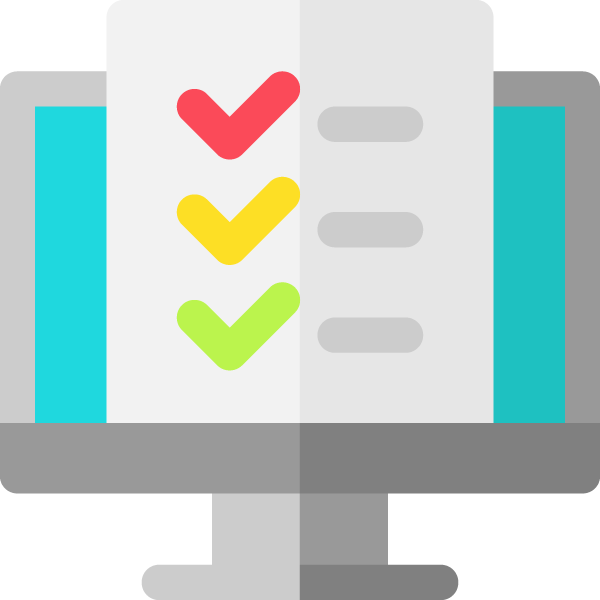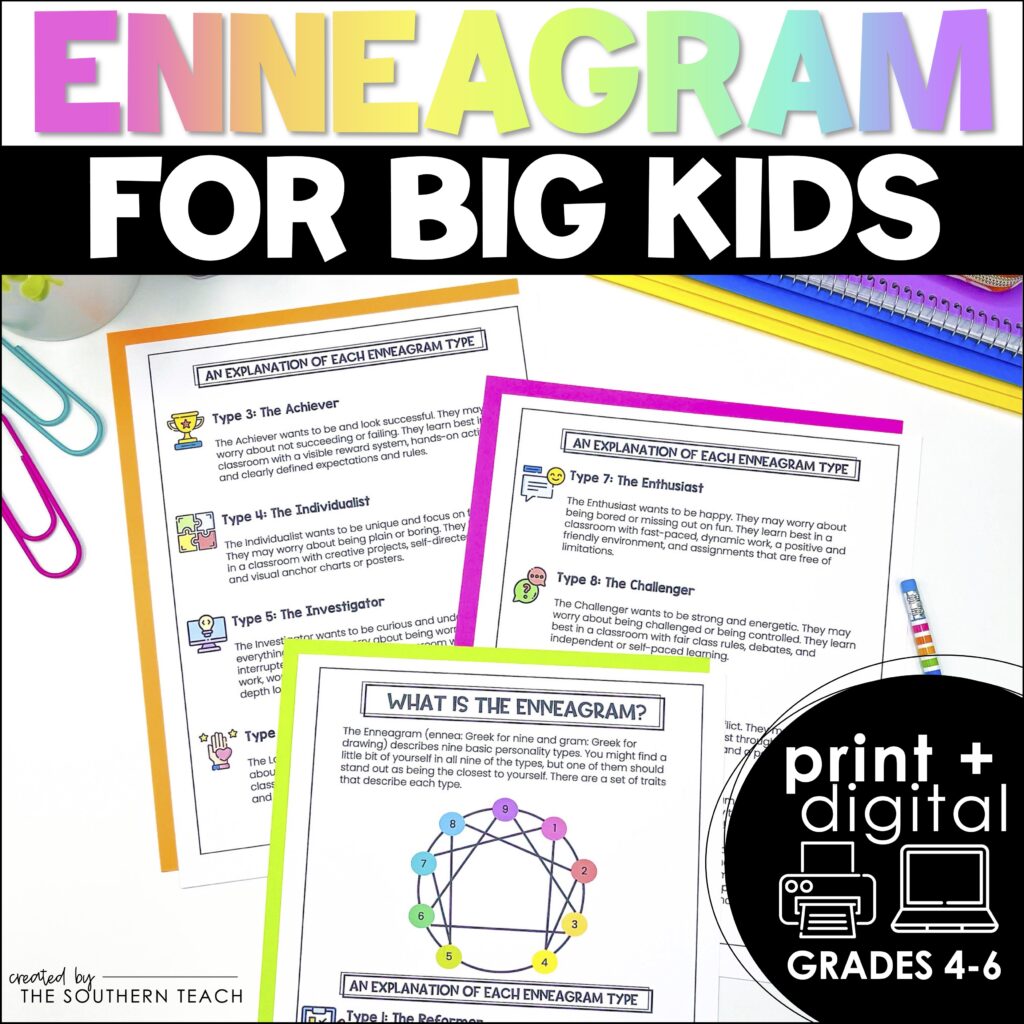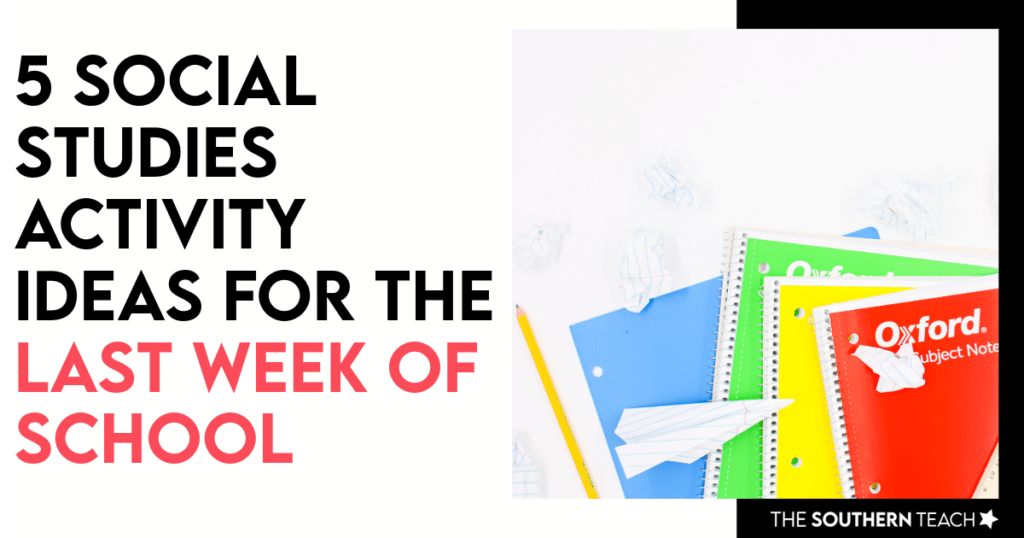Share This Post:
You may have heard of the Enneagram – the trendy, fun, and scarily accurate personality test.
One of my best resources on the topic is Enneagram for Big Kids!, but what about us as educators?
This blog post is going into our world with Enneagram for Teachers! I will be giving you actionable insights about your Enneagram type with a teacher twist on your strengths, weaknesses, and ways to be your best teacher self.
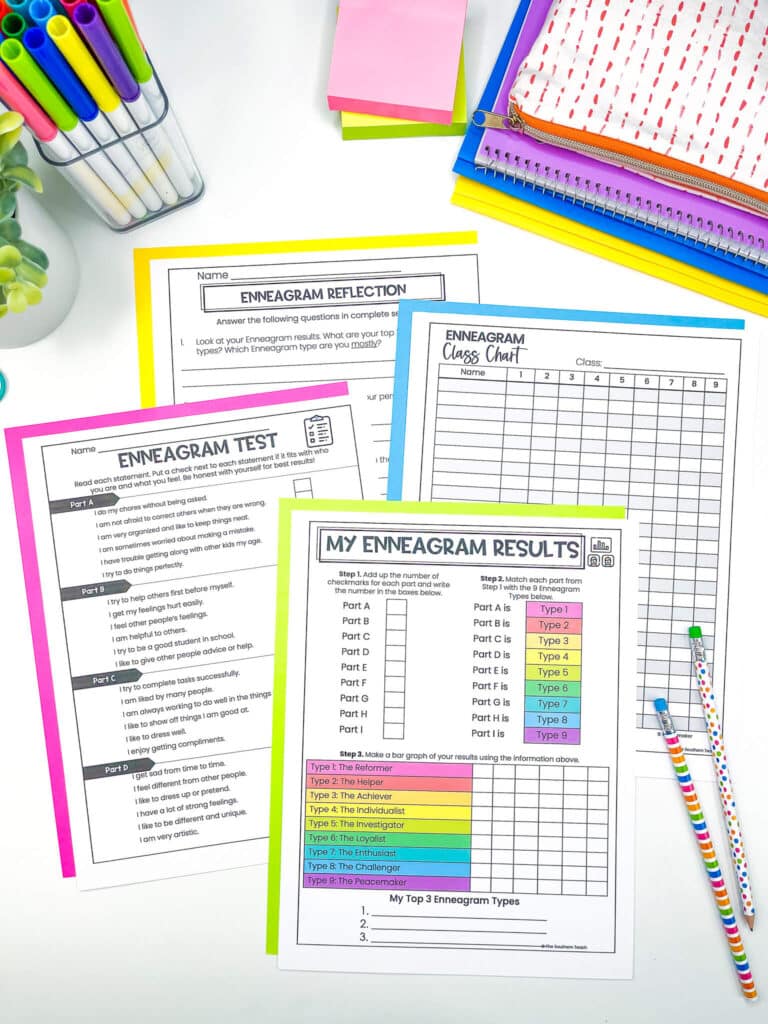
If you don’t know your Enneagram type already, you can go online to take a free Enneagram personality test (google search: free enneagram test).Personality Path is free and requires no email!
Teacher Enneagram Personality Types
Type 1: The Reformer
Your strengths are planning out your lessons ahead of time while understanding their purposes and objectives. You also know how to make those objectives clear for your students.
A serious weaknesses is that you might overplay it by some degree – little or lots – and end up classified as a perfectionist.
Remind yourself and your students that sometimes “done” is better than “perfect”! Give yourself some breaks. If your students are looking bored or aren’t getting it, be sure to slow down for them.
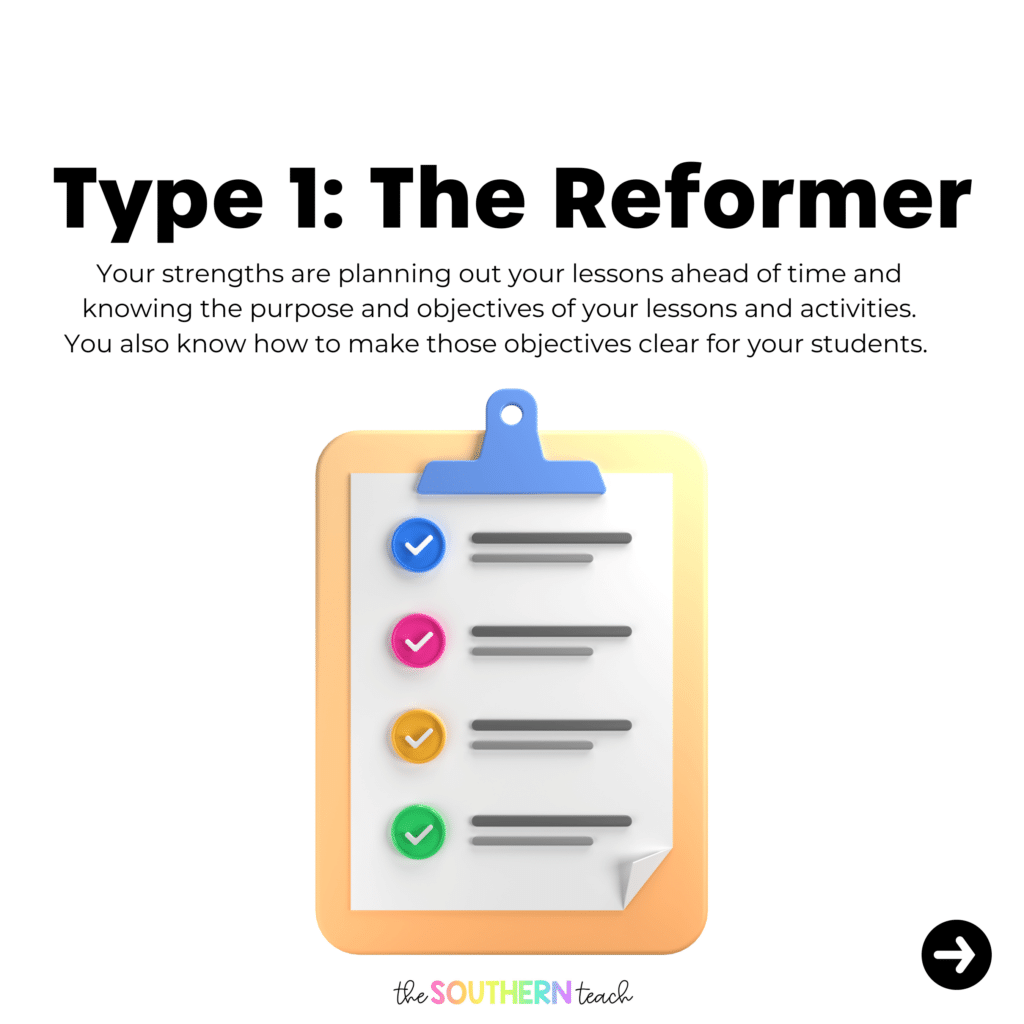
Type 2: The Helper
Your strengths are that you love to help your students. You love to build strong relationships with them and your coworkers. You also love to have a positive classroom environment.
Some weaknesses are that you might give too much of yourself to others, and it might be hard for you to let somebody down or initiate discipline.
Give yourself some love and focus on relationships outside of the school. Connect with your students without becoming too involved in any personal or family drama – set boundaries in this regard and stick to them. Give students advice or solutions without becoming their therapist.
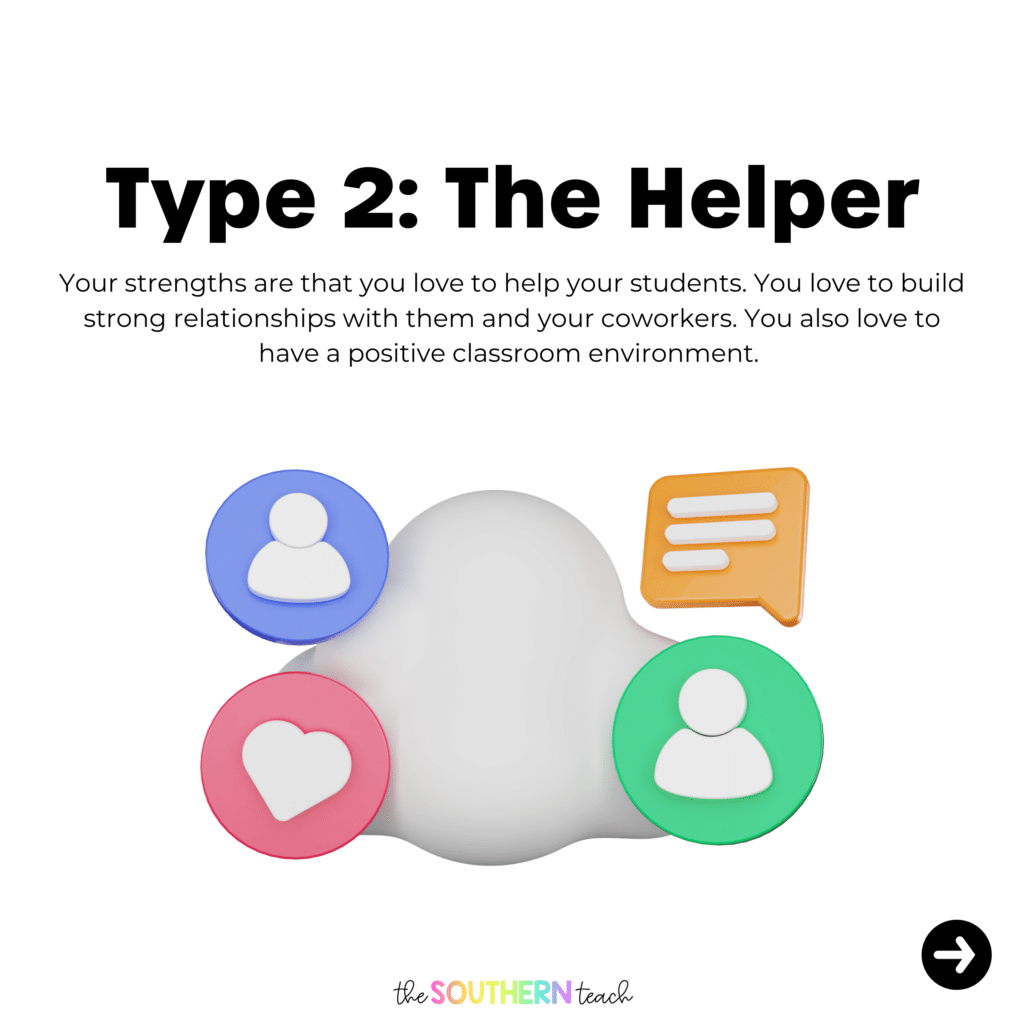
Type 3: The Achiever
Your strengths are being skilled at problem solving, believing in yourself, your students and your coworkers, not being afraid to try new things or curriculum an admin might throw at you, and having some really great ideas that teachers love to hear.
However, you are afraid to fail. You might rely too much on your teacher identity and you might overwhelm students with your high expectations of them.
Be kind to yourself and others. Make sure you manage a good work-life balance. Achieve as much as you can on the work side without sacrificing your personal life (work time limits are your friend). Also make sure to help your students feel loved and celebrated.
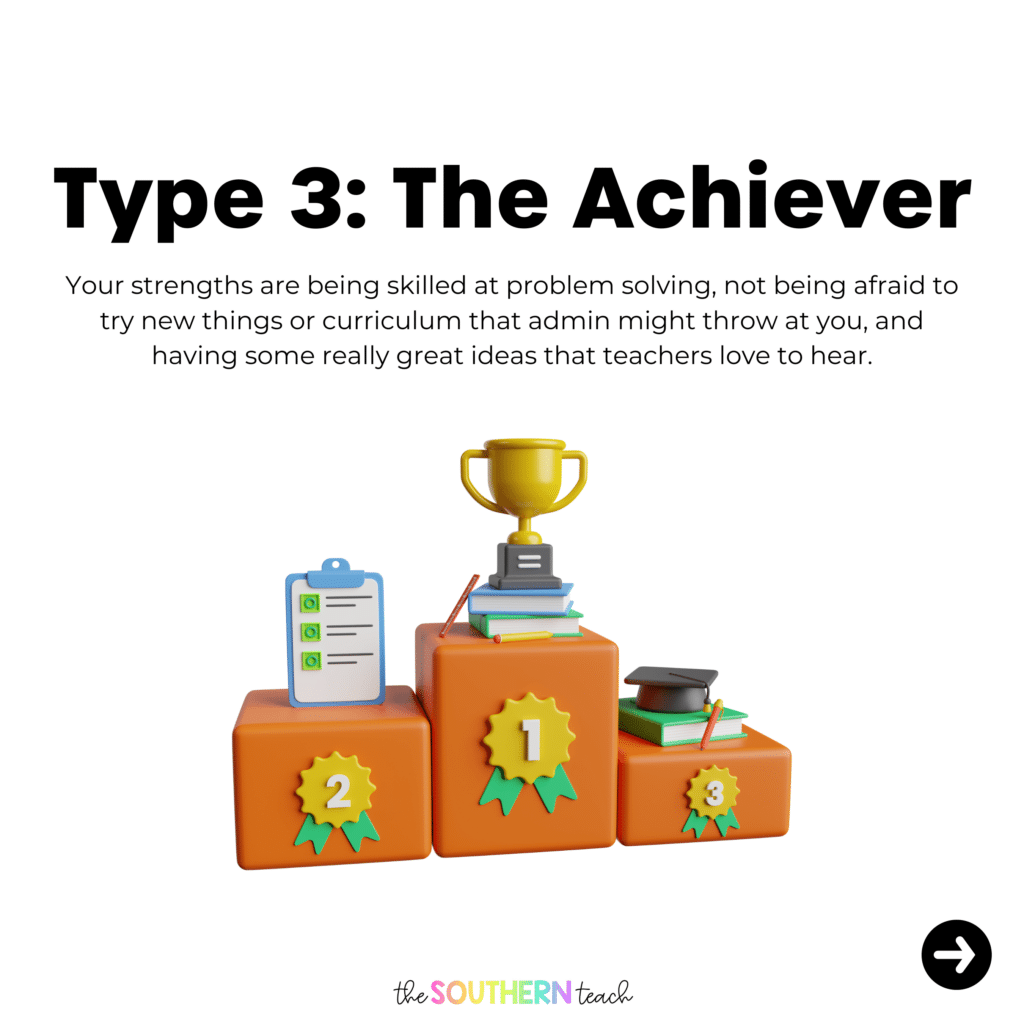
Type 4: The Individualist
Your strengths are being responsive to student needs. You differentiate accordingly, you’re quirky, creative, and you stay true to yourself.
Be careful not to withdraw and be disconnected with your students. You might be too sensitive to lack of feedback, or be overly critical of yourself and others.
Push yourself to connect with your family, friends, and students consistently. Double check yourself to be sure you aren’t treating any students unfairly when compared to others.
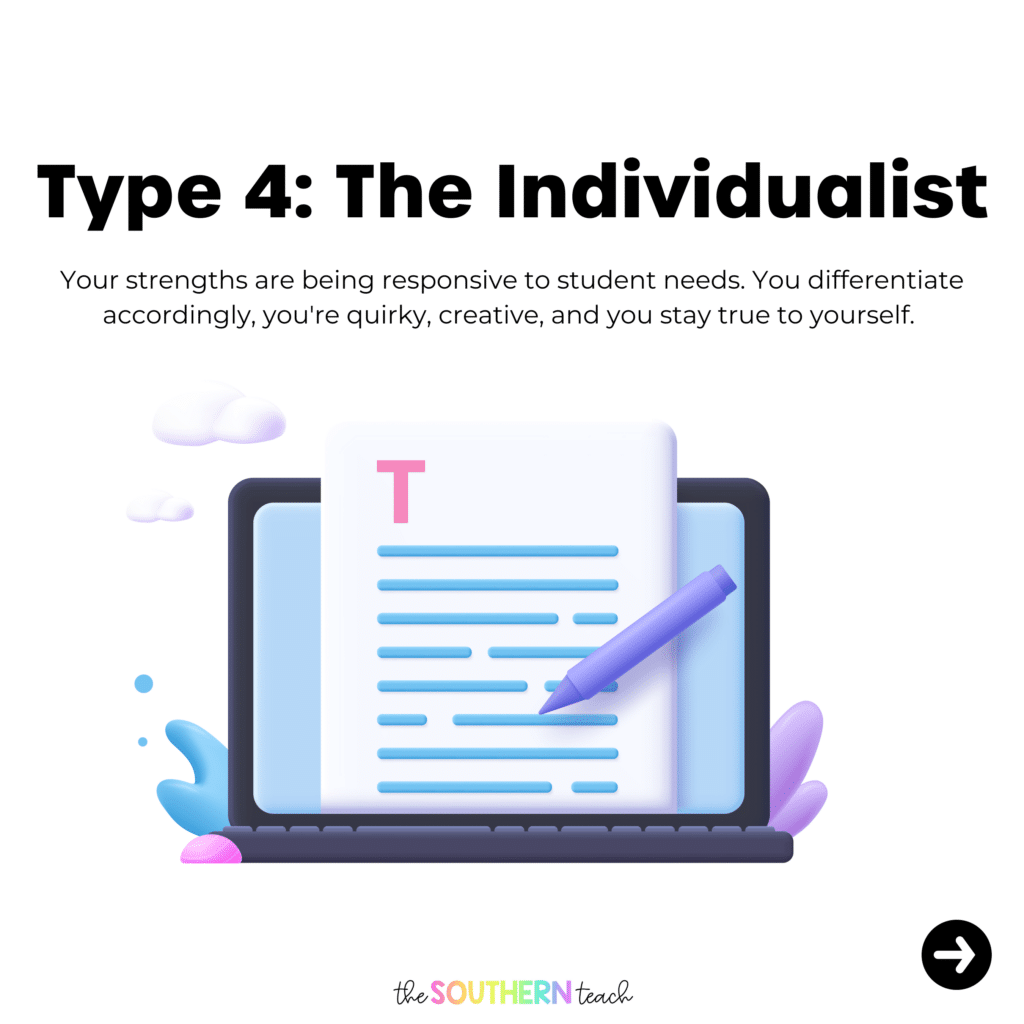
Type 5: The Investigator
You love to find ways to help your students succeed and have a ton of great strategies in the classroom.
You’re curious by nature and need to know the answer to everything. You tend to share your ideas after you’ve had enough time to fully explore them.
Use your curiosity appropriately. Let go of certain challenges in the classroom, such as if students might be acting out. Give them a little bit of grace! Don’t try to solve every problem on your own, and above all don’t be nosy!
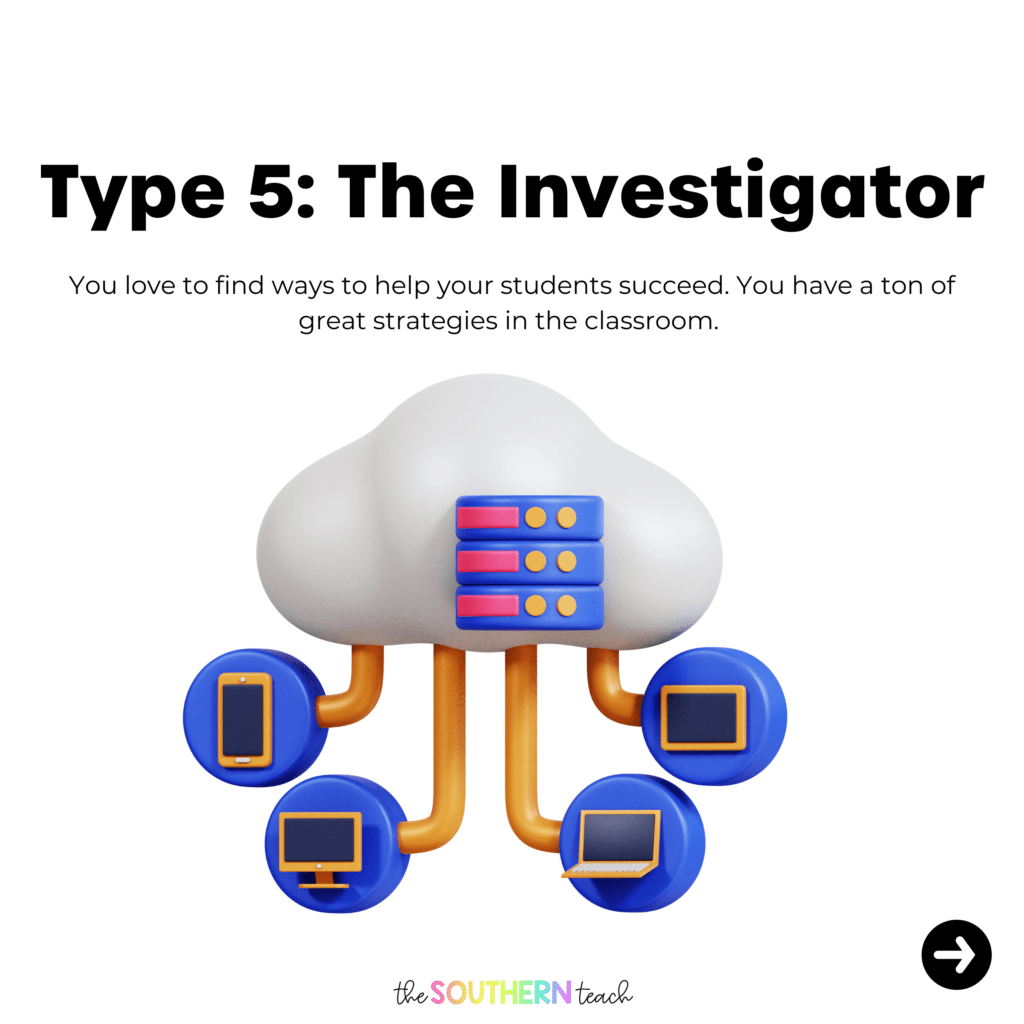
Type 6: The Loyalist
Your strengths are serving and reaching out to students as well as parents, and building relationships in a positive classroom environment. You make sure students are getting what they need socially, behaviorally, and academically.
You are susceptible to burnout, especially if your relationship with administration is not as good as you’d like. You might end up overreacting to students, parents, or colleagues.
Take time to relax, let your admin know you need to feel supported and be on the same page with them, and then work as a team – work smarter and not harder.
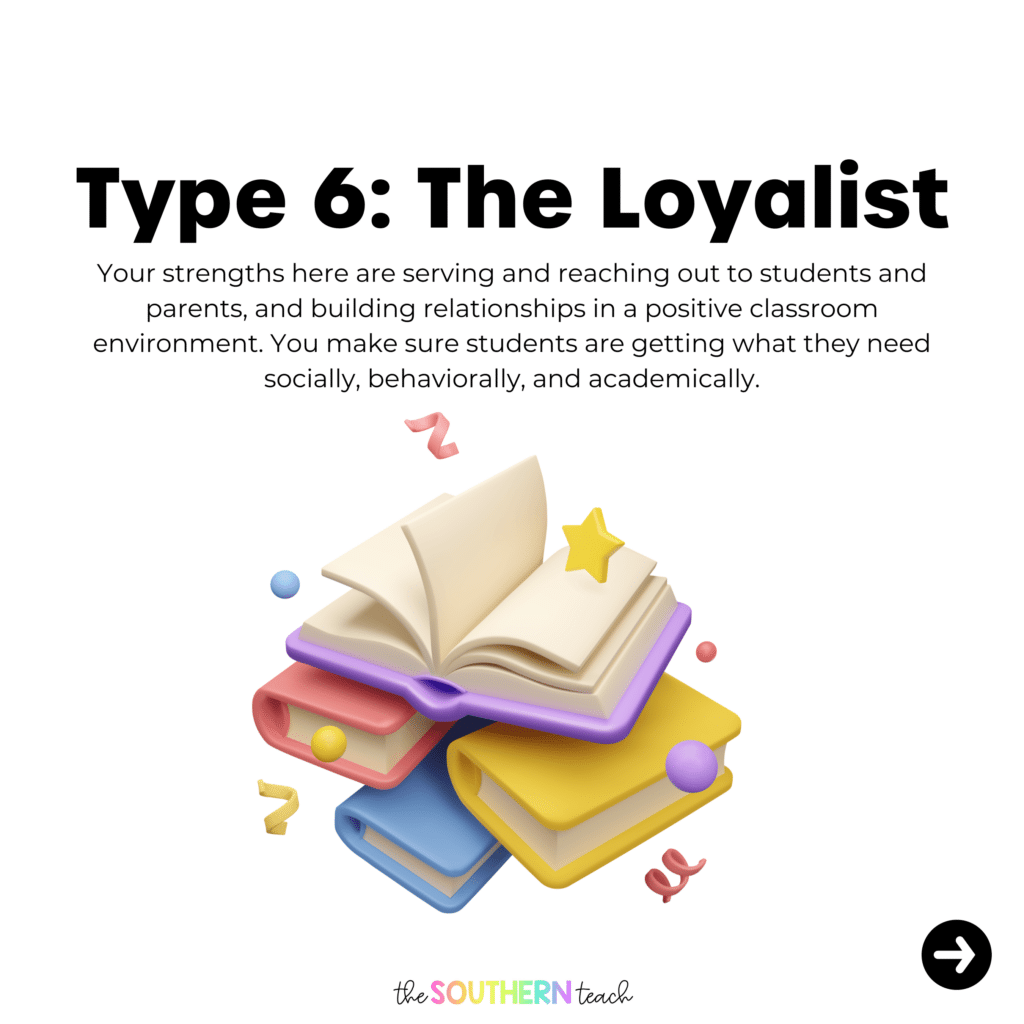
Type 7: The Enthusiast
You possess naturally positive energy, especially when the day is starting. You’re really great at motivating and checking in with your teammates and students. You love to build a fun and positive atmosphere and you love to try new things.
You might end up being overwhelmed with too many options and struggle with consistency. Some students do not react well to enthusiasm when they personally have none.
Having a schedule helps build consistency – consider planning more of your day the night before. Be sure not to leave any unmotivated students behind.
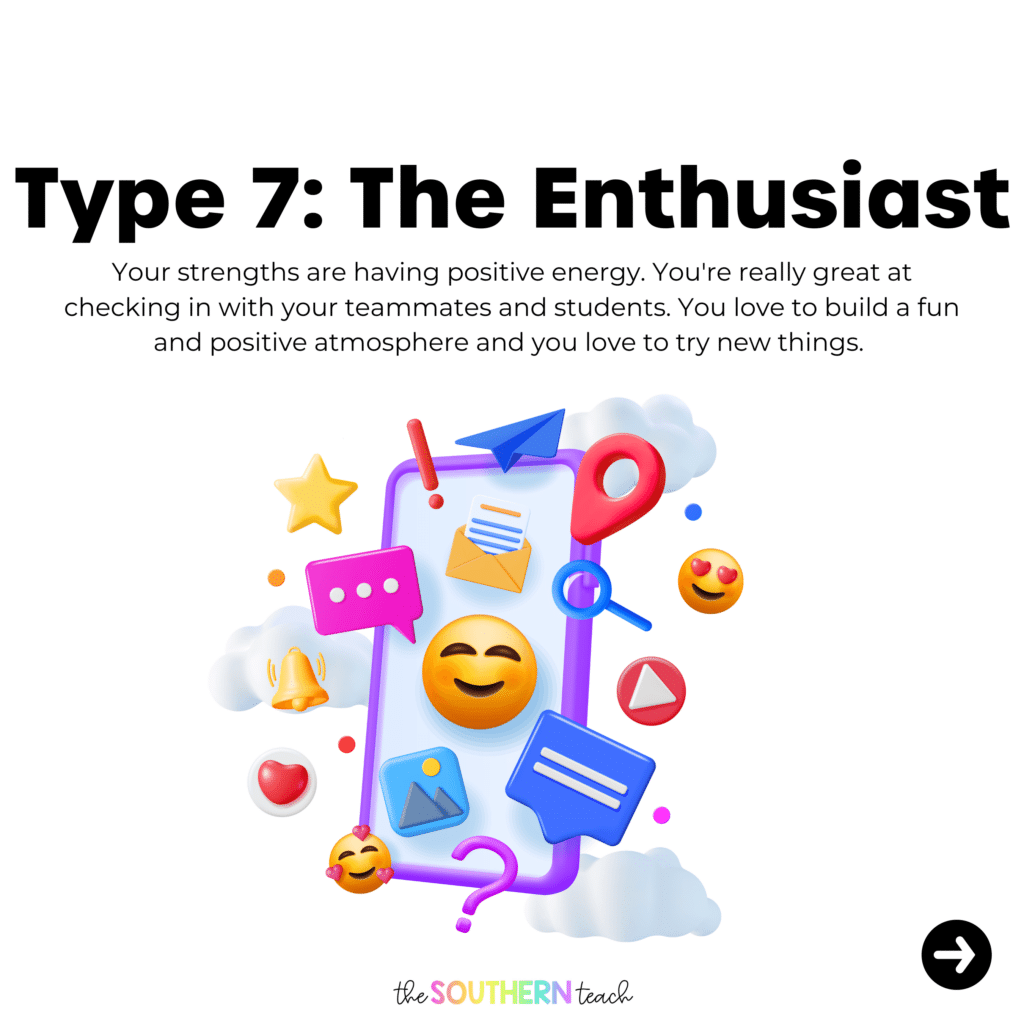
Type 8: The Challenger
Your strengths are setting high expectations for students. You’re not afraid to make big decisions for your class, and you are really great at smooth transitions and expectations for your students.
You might have a harder time shifting plans when things aren’t going the way you expected, and you might have a hard time listening to other people’s decisions.
B e sure to listen to other perspectives and don’t be afraid to readjust or give yourself time to recharge. Don’t be too skeptical. You’re great at setting challenging goals, but be sure they are realistic.
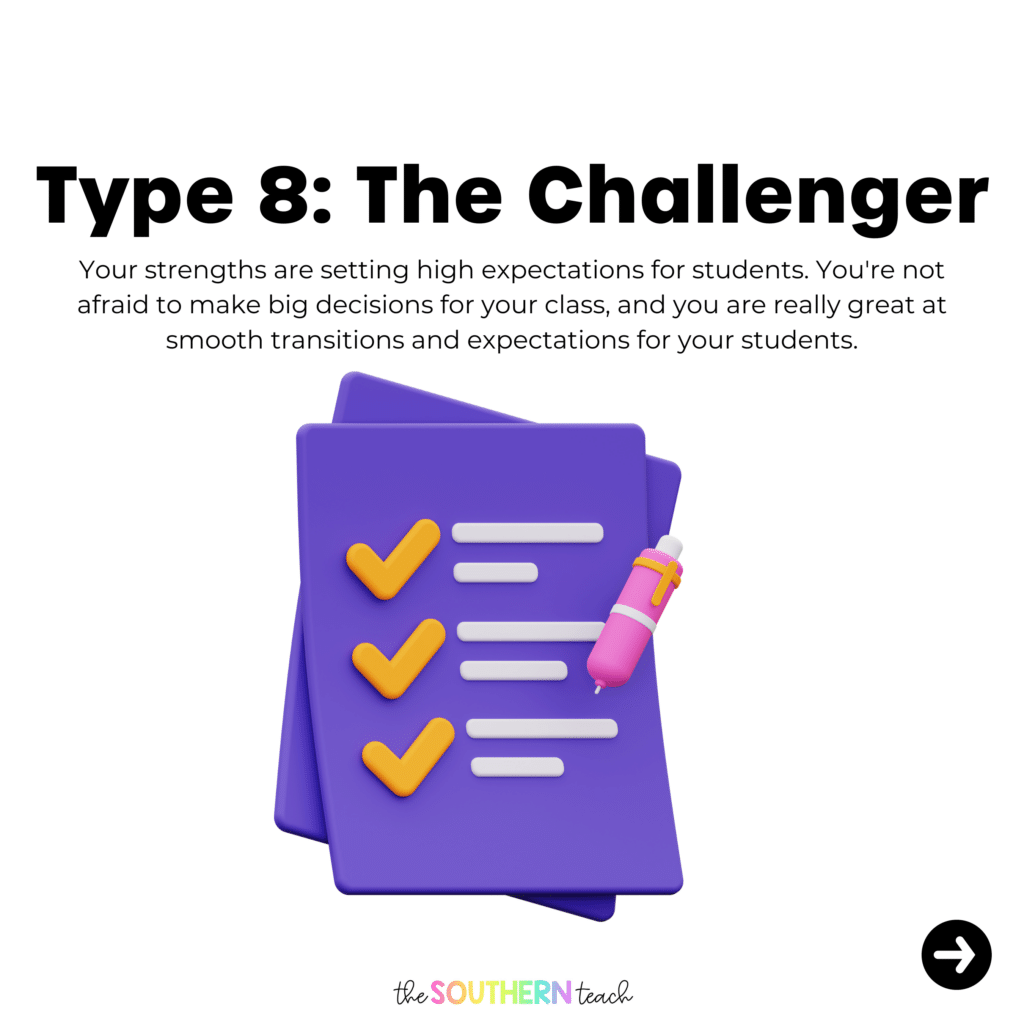
Type 9: The Peacemaker
Building relationships with students, families, and teachers comes naturally. You have a positive attitude, even when things around you are a dumpster fire.
Your worst weakness is that peacemaking often comes at your expense. You’re also prone to nosiness.
Remember that when there is not a clear victim and aggressor, the best compromises often come with some dissatisfaction on both sides. Conflict is inevitable, and sometimes there are no perfect solutions.
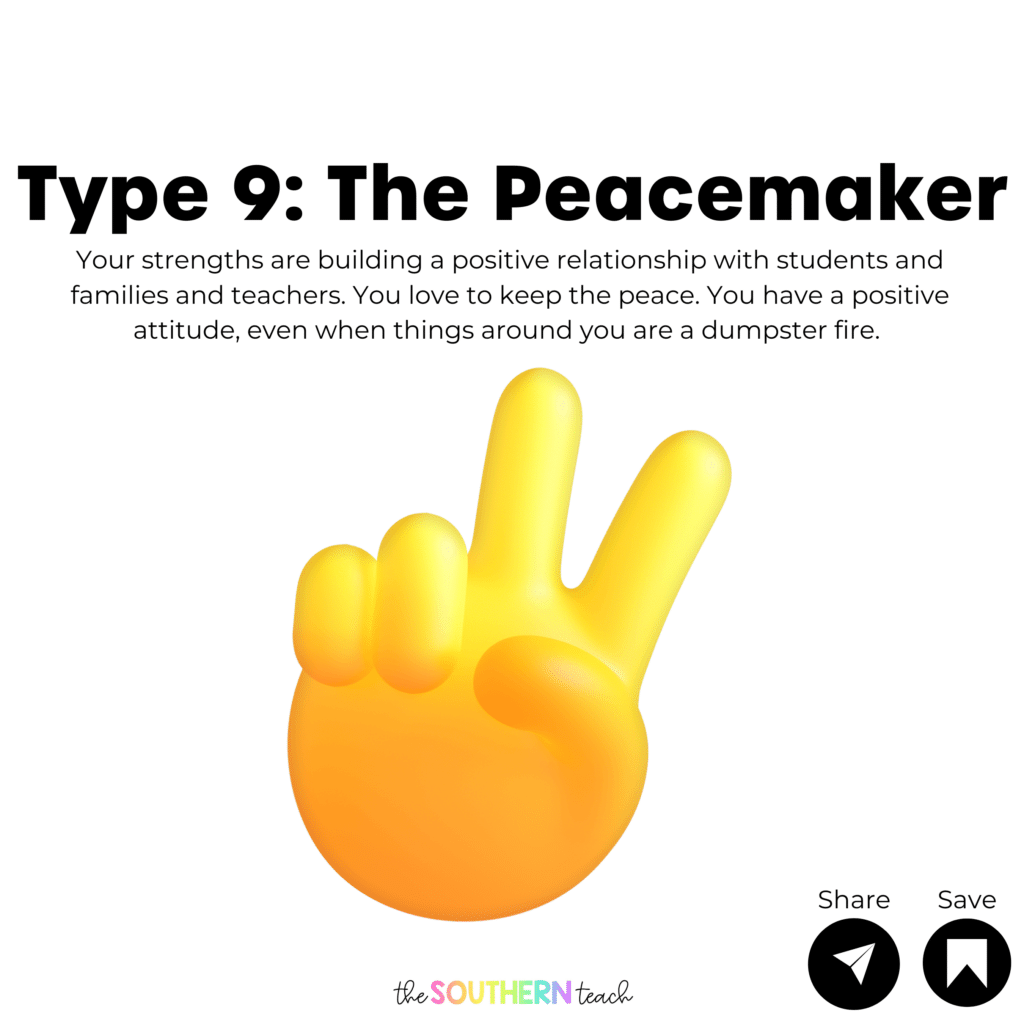
Be sure to take the quiz and find out your Enneagram type! Take note of the ways to be your best teacher self.
The first step to being the best teacher you can be – even during a tough year – is to recognize your strengths and weaknesses!
Want to have your students find out their Enneagram type? Check out Enneagram for Big Kids! You can also learn about more ways to understand student personality types.
kirsten hammond
Kirsten is a former 3rd and 5th grade teacher who loves helping upper elementary teachers by creating resources and sharing ideas that are engaging, research-based, and TEKS-aligned. She is a work-from-home mama of 3 rambunctious little ones and loves running, true crime, and lots of coffee.



